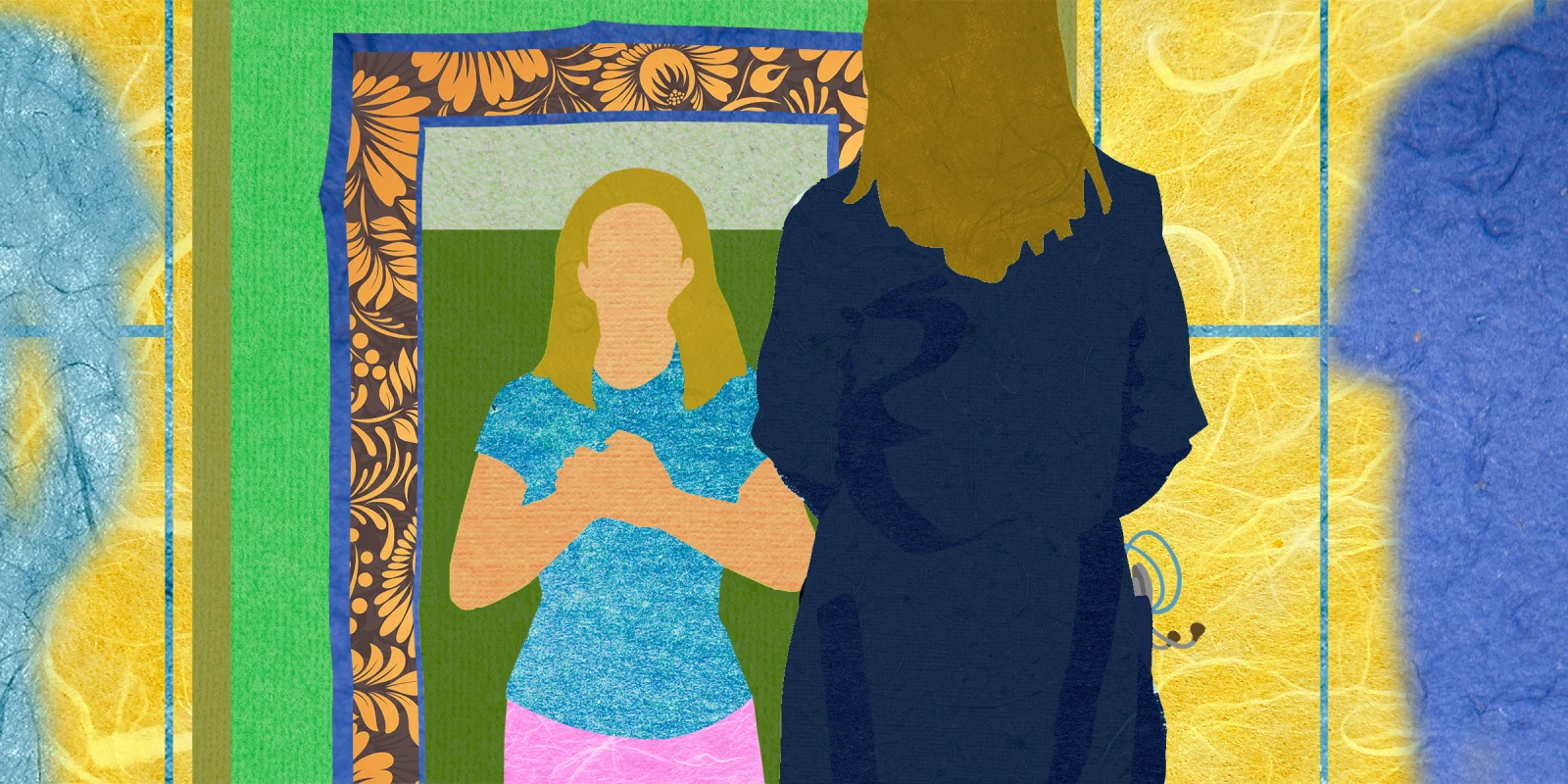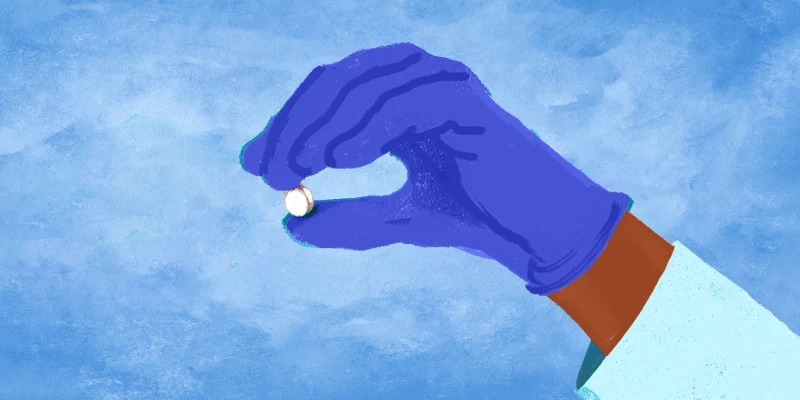Before becoming a nurse and then an NP, I was a professional orchestral musician. In many ways, the life of a professional musician is lonely: hundreds or thousands of hours over many years spent isolated in a practice room honing your skills, awaiting the critical moment of the audition or performance. Afterward, the review of your work may be published in the newspaper or online. It can be frightening, nerve-wracking, and sometimes demoralizing, and it can lead to impostor syndrome — a foundational crisis of confidence that has nothing to do with skills or ability.
I experienced this firsthand in the career I had worked for since childhood, when I inexplicably began to doubt my skills and competence and experienced impostor syndrome even though I was at the top of my professional game. I learned that this syndrome affects many different professions when, after adding eight more years of education and study to my CV, I transitioned into my career as an NP and recognized imposter syndrome in myself and others. It was a true crisis of confidence — stage fright of the highest degree.
Impostor syndrome is prevalent among musicians due to the subjective and highly personal nature of performance art and the high standards set within the industry. This phenomenon can lead to anxiety, self-doubt, and a persistent fear of being exposed as a fraud, despite external evidence of high levels of practiced competence. Anxiety and fear cannot work together to build a solid character or a confident professional. At some point, something will need to change. This is not just my story; it is not unique to the music profession.
In the bustling corridors of health care, where life-and-death decisions are made daily, NPs face a silent struggle. Despite their extensive training and critical role in patient care, many intermittently grapple with impostor syndrome, questioning their competence, worth, and value. While hopefully short-lived, this pervasive self-doubt can affect their mental health and the quality of care they provide. It is often discernible by patients and undermines the trust necessary for the clinician/patient relationship to be successful.
Who is most likely to experience impostor syndrome? A scoping review found that clinical nurse specialists and final-year nursing students are at significant risk of experiencing this, and it is a well-defined barrier to personal growth. A study in the British Journal of Nursing highlighted that impostor syndrome is most prevalent among nurses in specialist roles, and identified themes such as self-doubt, role expectations, and fear of exposure as an impostor as factors leading to burnout. Isn’t it interesting that impostor syndrome is similar in both performers and clinicians, despite these careers being worlds apart? Both face high expectations, comparison with peers, and a lack of recognition.
There are very real dangers of impostor syndrome. Persistent self-doubt can lead to anxiety, depression, and burnout. An anxious NP may hesitate to make decisions, ask questions, or advocate for their patient. They may struggle with clinical inertia. This may affect their judgment and decision-making, possibly leading to poor patient outcomes and causing even more rebound fear. An NP experiencing impostor syndrome may avoid pursuing advanced opportunities or leadership roles, believing they are not qualified or deserving.
One NP shared her experience of impostor syndrome in her publication during her first six months in the role. She felt intense self-doubt and feared making mistakes or being accused of fraud. She described how the transition to thinking more critically and managing patient care independently heightened her feelings of inadequacy. Over time, she gained confidence and learned to manage these feelings by seeking collegial support and focusing on continuous learning. This may be a situation where a strong transition to practice program, including mentorship, such as a postgraduate residency or fellowship, could strengthen confidence and skills, and prepare young NPs to survive the sometimes frenetic pace of medicine.
Addressing this silent struggle is crucial for fostering a supportive and effective health care environment and, ultimately, safe and successful patient outcomes. Furthermore, it is important to care for ourselves and the next generation of clinicians we mentor and teach.
What are some strategies we can use?
1) Peer Support. Engage in regular discussions with others to realize that you are not alone. Sharing experience and advice is validating.
2) Mentorship. Seeking guidance from those with more experience can provide reassurance and clinical knowledge. Mentors can share perspectives and everyday challenges.
3) Self-compassion. Treat yourself with kindness, especially when feeling inadequate. This can reduce the harshness of self-criticism that fuels impostor syndrome.
4) Mindfulness and Meditation. These techniques can help clinicians stay grounded, reduce anxiety, and promote acceptance of their feelings.
5) Professional Help. Therapists or counselors specializing in helping health care professionals can provide tailored therapies and strategies.
6) Setting Realistic Goals. Celebrating achievements can counteract feelings of inadequacy.
7) Continuous Learning. Having a growth mindset and viewing challenges as opportunities can help clinicians feel more competent.
8) Work-life balance. As elusive as it may seem, a healthy work-life balance prevents burnout and improves well-being. Take time for hobbies, exercise, and relaxation.
I was surprised that the shaky sands of impostor syndrome that I had experienced and recognized as a successful musician followed me into nursing and medicine. I was also surprised to see it in so many others who were top in their fields. I learned that it is not at all about performance or feedback, and this personal crisis affects all professions.
Impostor syndrome is a crisis of confidence, whether it originates internally or is influenced by external factors. It is pervasive, debilitating, and can paralyze even the most competent NP. The most crucial action we can take is recognizing impostor syndrome in ourselves, our colleagues, and our students. Identifying this silent struggle is the first and most vital step. Following this, we must offer kindness, education, and encouragement to help each other overcome it.
Have you experienced impostor syndrome in your career? Share below in the comments!
Allison Dimsdale, DNP is a Nurse Practitioner in Durham, NC. She enjoys spending time with her children and grandchildren, husband, and ever-changing assortment of rescue hounds. She loves to kayak, and no longer cooks. Allison Dimsdale is a 2024–2025 Doximity Op-Med Fellow.
Illustration by Jennifer Bogartz




